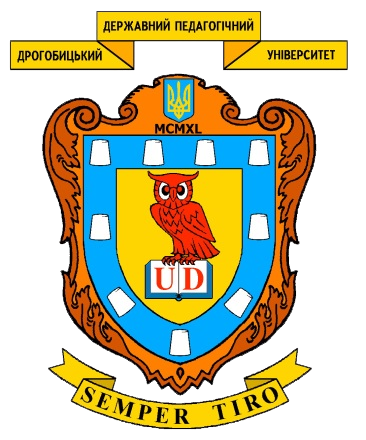THE READINESS OF TEACHERS OF THE MODERN UKRAINIAN SCHOOL TO WORK IN THE INCLUSIVE EDUCATION CONDITIONS
DOI:
https://doi.org/10.24919/2312-8437.45.196289Keywords:
readiness; inclusive education; disabilities; levels of readiness for inclusive education; education systemAbstract
Currently, the Ukrainian educational system is undergoing significant changes. The article discusses necessity of updating training technologies that contribute to improving the quality of educational process. In the context of educational reforms, the question of imple-mentation expediency of inclusive learning and increasing requirements for the teachers has become very important. Most respondents positively comment on the role of inclusion in the educational process of a secondary school or kindergarten fully or partly agree that inclusive education should be one of the education forms for children with disabilities, although not all teachers are motivated to implement the ideas of inclusion in their teaching practice. This is confirmed by quantitative data on the criterion of motivational and value readiness. As the main argument – justifying the respondents’ lack of motivation to work in conditions of inclusive education can be attributed to a lack of necessary knowledge about peculiarities of the development of children with disabilities, their special educational needs and ways of meeting these needs with the use of special corrective-pedagogical influence methods. The teachers’ operational-active readiness to work in inclusive education mainly corresponds to the average level. This is an insufficient indicator due to respondents’ lack of knowledge about the principles and understanding of inclusive education tasks as well as lack of ability to select effective teaching methods and techniques, technologies of personalized support for a child with disabilities. The analysis of the teachers’ reflective-evaluation readiness to work in the inclusive education conditions showed that respondents adequately assess their own professional competence in the inclusive field. They indicate their existing difficulties and problems and seek to highlight causes. In addition: teachers cannot analyze available resources and identify opportunities for organizing inclusive practice; they cannot evaluate the effectiveness of the proposed methods and techniques for teaching children with disabilities; they cannot detect existing problems.
References
Горбунова, Л.Н. (2009). Исследовательский тренинг в повышении квалификации педагогов – субъектов развития образования. Стандарты и мониторинг в образовании, 6, 21–25.
Козырева, В.А., Радионова, Н.Ф., & Тряпицына, А.П. (Ред.). (2008). Компетентностный подход в педагогическом образовании. Санкт-Петербург: Изд-во РГПУ им. А.И. Герцена.
Краевский, В.В., & Хуторской, А.В. (2003). Предметное и общепредметное в образовательных стандартах. Педагогика, 3, 3–10.
Шульженко, Д.І. (2009). Основи психологічної корекції аутичних порушень у дітей. Київ: [б.в.].
Островська, К.О. (2011). Особливості ставлення педагогів загальноосвітньої школи до інклюзивної освіти. Актуальні проблеми психології: зб. наук. праць Інституту психології імені Г.С. Костюка. Т. 10: Психологія навчання. Генетична психологія, 10 (18), 337–347. Київ: ДП «Інформаційно-аналітичне агентство».
Островська, К.О. (2012). Психологічні чинники емоційного вигорання у корекційних педагогів. Науковий часопис НПУ імені М.П. Драгоманова. Серія 19: Корекційна педагогіка та спеціальна психологія, 21, 399–404. Київ. Островська, К.О., Саламон, О.Л., Січкар, Л.І., Кондратенко, Ю.В., & Рєзнік, Н.В. (2017). Секвенційні програми допомоги дітям з аутизмом. Львів: Малий видавничий центр ЛНУ імені Івана Франка. Синьов, В.М., & Шульженко, Д.І. (2012). Особливості умови соціалізації дітей з аутистичними порушеннями. Науковий часопис НПУ імені М.П. Драгоманова. Серія 19: Корекційна педагогіка та спеціальна психологія, 21, 251–256. Київ: НПУ імені М.П. Драгоманова.
Шевцов, А.Г., & Синьов, В. (2004). Нова стратегія розвитку корекційної педагогіки в Україні. Дефектологія, 2, 6–10.
Шевцов, А.Г. (2007). Професійна мобільність корекційного педагога у реабілітаційній системі координат. Дефектологія, 4, 40–43.







